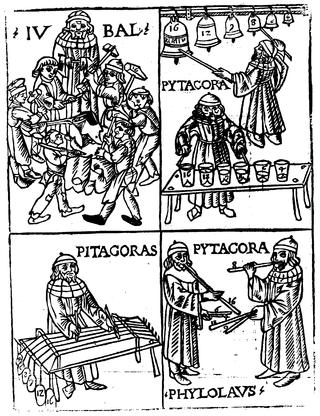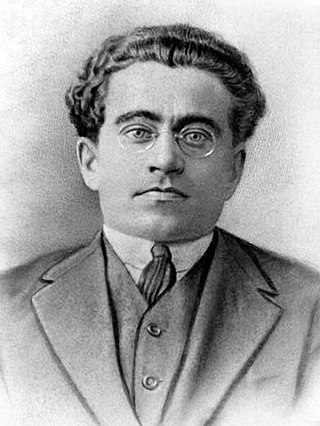
Cultural anthropology is a branch of anthropology focused on the study of cultural variation among humans. It is in contrast to social anthropology, which perceives cultural variation as a subset of a posited anthropological constant. The term sociocultural anthropology includes both cultural and social anthropology traditions.
Historicism is an approach to explaining the existence of phenomena, especially social and cultural practices, by studying their history; that is, by studying the process by which they came about. The term is widely used in philosophy, anthropology, and sociology.

Phonetics is a branch of linguistics that studies how humans produce and perceive sounds, or in the case of sign languages, the equivalent aspects of sign. Linguists who specialize in studying the physical properties of speech are phoneticians. The field of phonetics is traditionally divided into three sub-disciplines based on the research questions involved such as how humans plan and execute movements to produce speech, how various movements affect the properties of the resulting sound, or how humans convert sound waves to linguistic information. Traditionally, the minimal linguistic unit of phonetics is the phone—a speech sound in a language which differs from the phonological unit of phoneme; the phoneme is an abstract categorization of phones, and it is also defined as the smallest unit that discerns meaning between sounds in any given language.

Music theory is the study of the practices and possibilities of music. The Oxford Companion to Music describes three interrelated uses of the term "music theory": The first is the "rudiments", that are needed to understand music notation ; the second is learning scholars' views on music from antiquity to the present; the third is a sub-topic of musicology that "seeks to define processes and general principles in music". The musicological approach to theory differs from music analysis "in that it takes as its starting-point not the individual work or performance but the fundamental materials from which it is built."

Antonio Francesco Gramsci was an Italian Marxist philosopher, linguist, journalist, writer, and politician. He wrote on philosophy, political theory, sociology, history, and linguistics. He was a founding member and one-time leader of the Italian Communist Party. A vocal critic of Benito Mussolini and fascism, he was imprisoned in 1926 where he remained until his death in 1937.

In Marxist philosophy, cultural hegemony is the dominance of a culturally diverse society by the ruling class who shape the culture of that society—the beliefs and explanations, perceptions, values, and mores—so that the worldview of the ruling class becomes the accepted cultural norm. As the universal dominant ideology, the ruling-class worldview misrepresents the social, political, and economic status quo as natural, inevitable, and perpetual social conditions that benefit every social class, rather than as artificial social constructs that benefit only the ruling class.

In the social sciences, social structure is the aggregate of patterned social arrangements in society that are both emergent from and determinant of the actions of individuals. Likewise, society is believed to be grouped into structurally related groups or sets of roles, with different functions, meanings, or purposes. Examples of social structure include family, religion, law, economy, and class. It contrasts with "social system", which refers to the parent structure in which these various structures are embedded. Thus, social structures significantly influence larger systems, such as economic systems, legal systems, political systems, cultural systems, etc. Social structure can also be said to be the framework upon which a society is established. It determines the norms and patterns of relations between the various institutions of the society.
Articulation may refer to:
Paradigmatic analysis is the analysis of paradigms embedded in the text rather than of the surface structure (syntax) of the text which is termed syntagmatic analysis. Paradigmatic analysis often uses commutation tests, i.e. analysis by substituting words of the same type or class to calibrate shifts in connotation.
Cultural determinism is the belief that the culture in which we are raised determines who we are at emotional and behavioral levels. It contrasts with genetic determinism, the theory that biologically inherited traits and the environmental influences that affect those traits dominate who we are.
In linguistics, a distinctive feature is the most basic unit of phonological structure that distinguishes one sound from another within a language. For example, the feature [voice] distinguishes the two bilabial plosives: [p] and [b]. There are many different ways of defining and arranging features into feature systems: some deal with only one language while others are developed to apply to all languages.
Mediation in Marxist theory refers to the reconciliation of two opposing forces within a given society by a mediating object. Put another way "Existence differs from Being by its mediation"...."The Thing-in-itself and its mediated Being are both contained in Existence, and each is an Existence; the Thing-in-it-self exists and is the essential Existence of the Thing, while mediated Being is its unessential Existence ..."

The Prison Notebooks are a series of essays written by the Italian Marxist Antonio Gramsci. Gramsci was imprisoned by the Italian Fascist regime in 1926. The notebooks were written between 1929 and 1935, when Gramsci was released from prison to a medical center on grounds of ill-health. His friend, Piero Sraffa, had supplied the writing implements and notebooks. Gramsci died in April 1937.
Cultural studies is a politically engaged postdisciplinary academic field that explores the dynamics of especially contemporary culture and its social and historical foundations. Cultural studies researchers generally investigate how cultural practices relate to wider systems of power associated with, or operating through, social phenomena. These include ideology, class structures, national formations, ethnicity, sexual orientation, gender, and generation. Employing cultural analysis, cultural studies views cultures not as fixed, bounded, stable, and discrete entities, but rather as constantly interacting and changing sets of practices and processes. The field of cultural studies encompasses a range of theoretical and methodological perspectives and practices. Although distinct from the discipline of cultural anthropology and the interdisciplinary field of ethnic studies, cultural studies draws upon and has contributed to each of these fields.
The primary stage of socialism, introduced into official discourse by Mao Zedong as the initial stage of socialism, is a sub-theory of Chinese Marxist thought which explains why capitalist techniques are used in the Chinese economy. It maintains that China is in the first stage of building a communist society, in a stage where there is private ownership.
Film semiotics is the study of sign process (semiosis), or any form of activity, conduct, or any process that involves signs, including the production of meaning, as these signs pertain to moving pictures. Film semiotics is used for the interpretation of many art forms, often including abstract art.
Ideological diversionism:, term first used by Raúl Castro, then Commander in Chief of the Armed Forces and later President of the Council of State of Cuba, delivered as a speech to the Ministry of the Interior (MININT) on June 6 of 1972 to celebrate its eleventh anniversary, and published in its entirety in the Cuban magazine Bohemia under the title "El diversionismo Ideologico, arma sutil que esgrimen los enemigos contra la Revolución" [1]. "Ideological Diversionism", as used by Castro defined the discursive practice of subjects who appropriated Marxist and communist rhetoric without the "true revolutionary commitment". The "diversionist" thus was a camouflaged subject that spoke as it were from the inside the lines of the Revolutionary cadres, but in reality subscribing the vices and habits of bourgeoisie values. Ideological Diversionism redefined the political culture of Cuban social landscape during the decades of seventies and eighties, functioning even as a legal and moral category to proscribe, and demoralize dissent and revolutionary citizens that adopted norms that the State sought as deviant from standard social conducts.

In Marxist theory, society consists of two parts: the base and superstructure. The base refers to the mode of production which includes the forces and relations of production into which people enter to produce the necessities and amenities of life. The superstructure refers to society's other relationships and ideas not directly relating to production including its culture, institutions, roles, rituals, religion, media, and state. The relation of the two parts is not strictly unidirectional. The superstructure can affect the base. However, the influence of the base is predominant.
Various Marxist authors have focused on Marx's method of analysis and presentation as key factors both in understanding the range and incisiveness of Karl Marx's writing in general, his critique of political economy, as well as Grundrisse andDas Kapital in particular. One of the clearest and most instructive examples of this is his discussion of the value-form, which acts as a primary guide or key to understanding the logical argument as it develops throughout the volumes of Das Kapital.
Marxist cultural analysis is a form of cultural analysis and anti-capitalist cultural critique, which assumes the theory of cultural hegemony and from this specifically targets those aspects of culture which are profit driven and mass-produced under capitalism.






